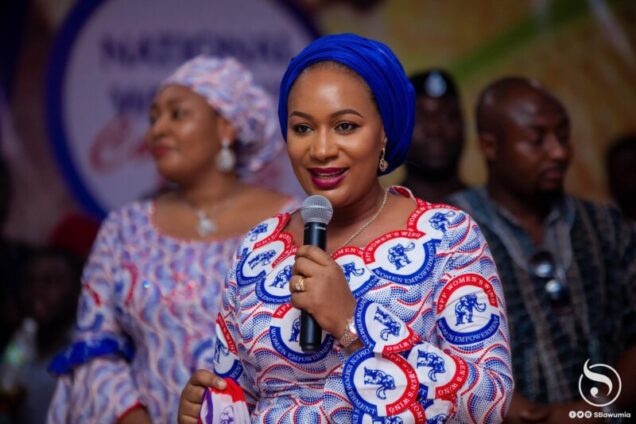Samira Bawumia is back on the campaign trail — and her impact has been immediate. Like a skilled substitute entering a tense football match, she wast
Samira Bawumia is back on the campaign trail — and her impact has been immediate. Like a skilled substitute entering a tense football match, she wasted no time in making her presence felt. Michelle Obama did it for Barack. Hillary did it for Bill. And now, Samira is doing it in Ghana.
Across modern political landscapes, the role of spouses in presidential campaigns has grown increasingly influential. At a recent rally, Mrs. Bawumia made a bold statement — one that quickly resonated with many young people. Speaking in Twi, she said (translated):
“If they can ask Dr. Bawumia when he joined the party, then as a young person, you should ask yourself: what is your future in this party? This is not the way to go. This party is about service; if you apply yourself, you will get what you deserve. And that is what we must decide on January 31.”
Her remarks addressed the ongoing debate within Ghana’s leading opposition party about who qualifies as an “insider” or “outsider.” This “us versus them” dynamic — the creation of in-groups and out-groups — is a recurring theme in politics everywhere. It shaped the 2008 U.S. elections that brought Barack Obama to power and resurfaced in 2016, 2020, and even 2024.
In a single, deftly crafted message, Samira tackled several key issues. She championed the role of young people in politics, urging them to look beyond entrenched systems of patronage, hierarchy, and ethnocentrism. Through a simple rhetorical question — “Ask yourself, what is my future?” — she invited introspection and empowerment.
From a communication standpoint, this was a strategic move. Great leaders often use rhetorical questions to stir reflection and inspire change. In doing so, Samira underscored the value of meritocracy — the belief that progress should be based on talent, hard work, and contribution, not privilege. It’s the same ideal that underpins the “American Dream,” the idea that all people are created equal and entitled to life, liberty, and the pursuit of happiness. Samira seems to be asking: Why can’t Ghana have its own dream — a Ghanaian Dream — built on merit and fairness?
She also emphasized service, defending her husband, Dr. Mahamudu Bawumia, against claims that he is an outsider. She highlighted his record — from his time as a running mate and key figure in the 2012 Supreme Court petition to his years as Vice President from 2016 to 2024 — as proof of his enduring commitment and contribution to the party and the nation.
Finally, Samira offered a message of hope. She called on young voters to choose values over divisions, reminding them of the upcoming January 31st primaries — a moment of decision and action. This blending of optimism, direction, and urgency is a hallmark of persuasive political speech.
So, is Samira Bawumia Ghana’s Michelle Obama or Hillary Clinton? Perhaps she is both — possessing Michelle’s charisma, resilience, and cultural influence, and Hillary’s assertiveness, intellect, and discipline. Like them, she stands as a powerful political communicator, embodying purpose and presence.
Samira Bawumia is back — and she’s already making a difference.
